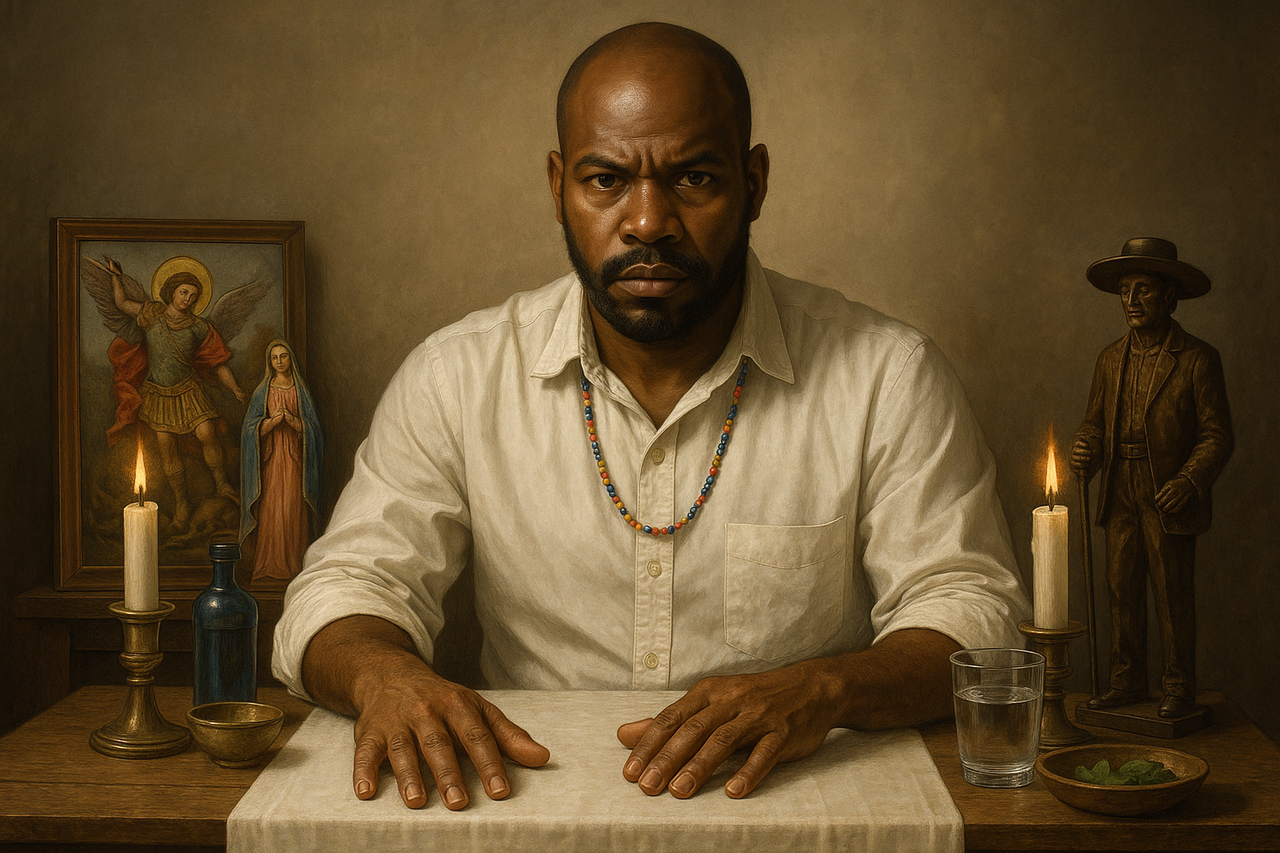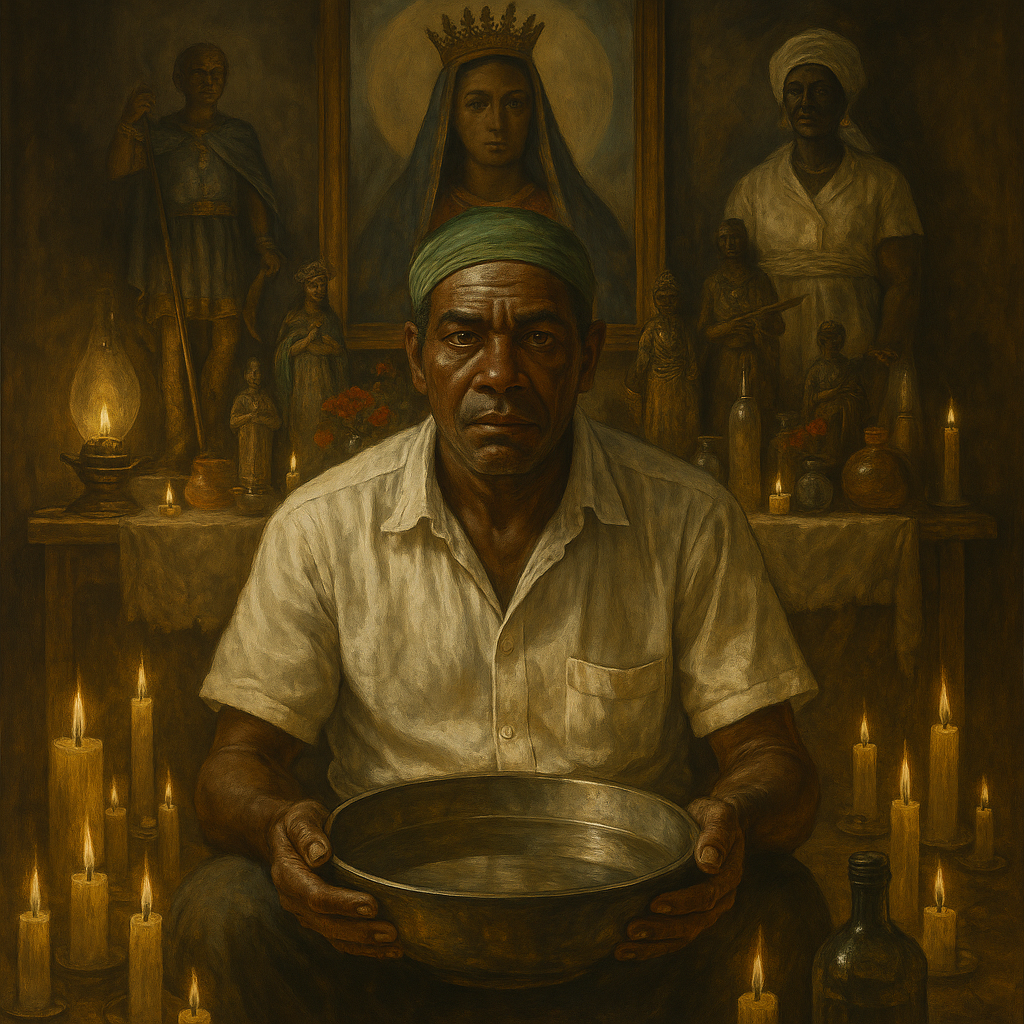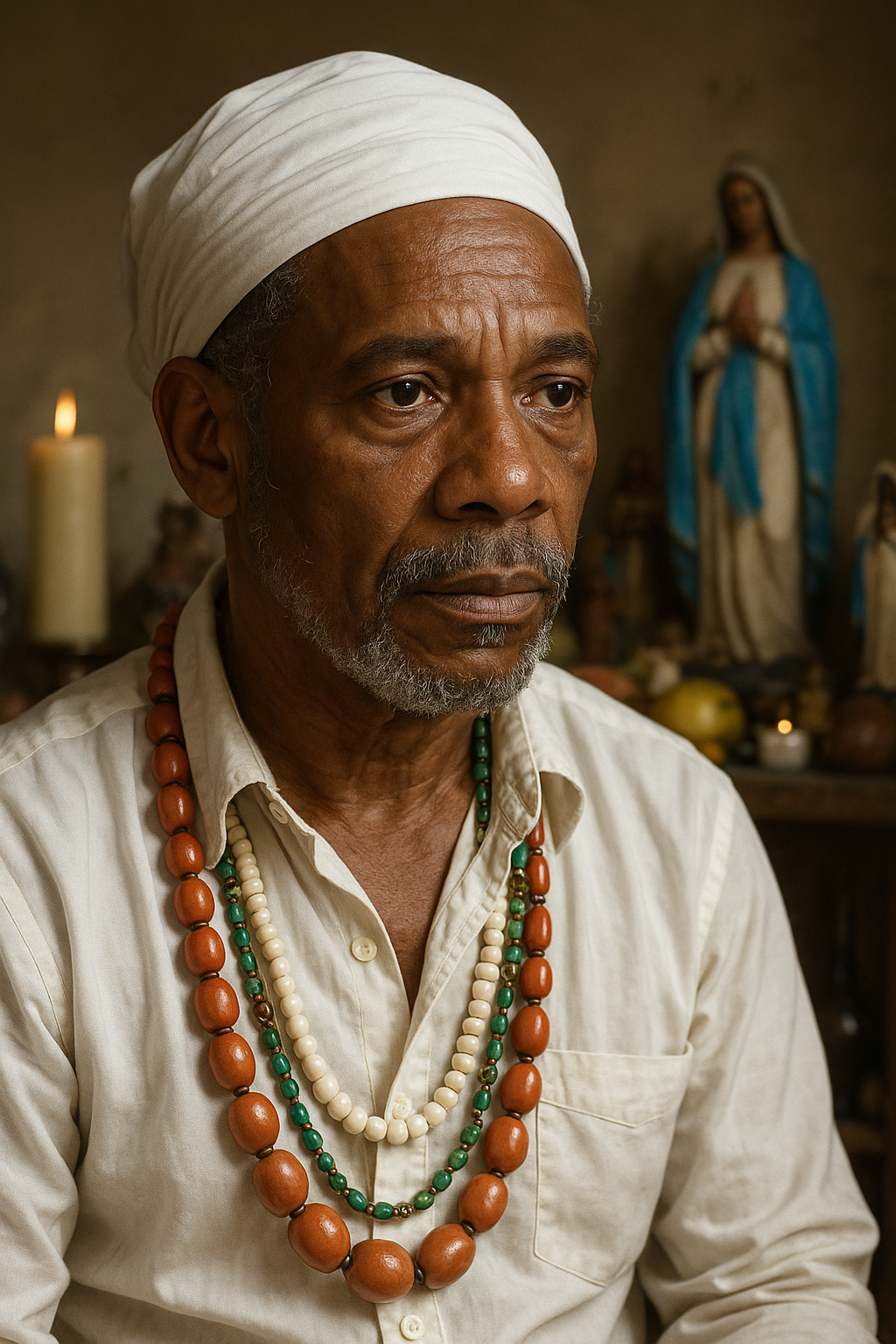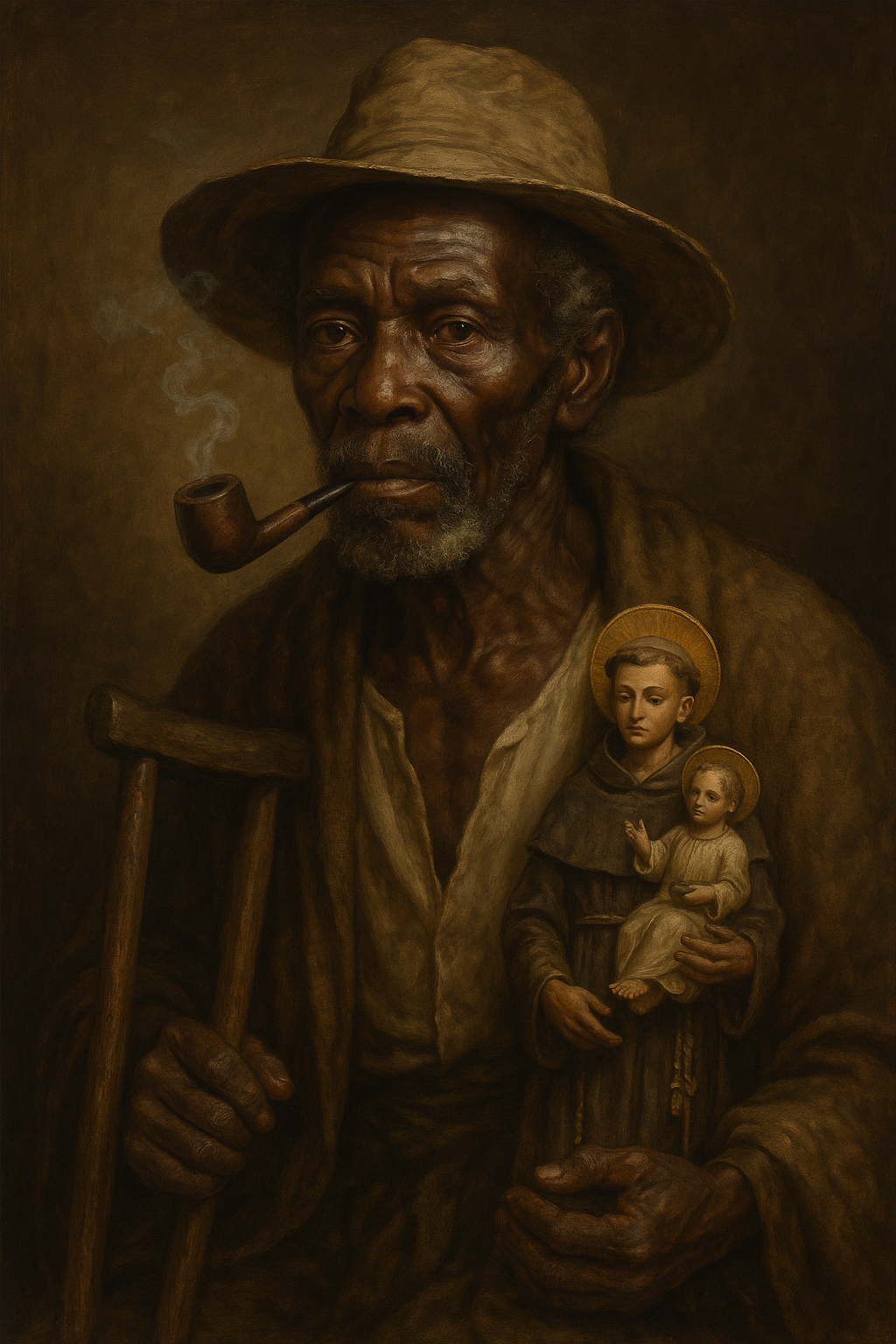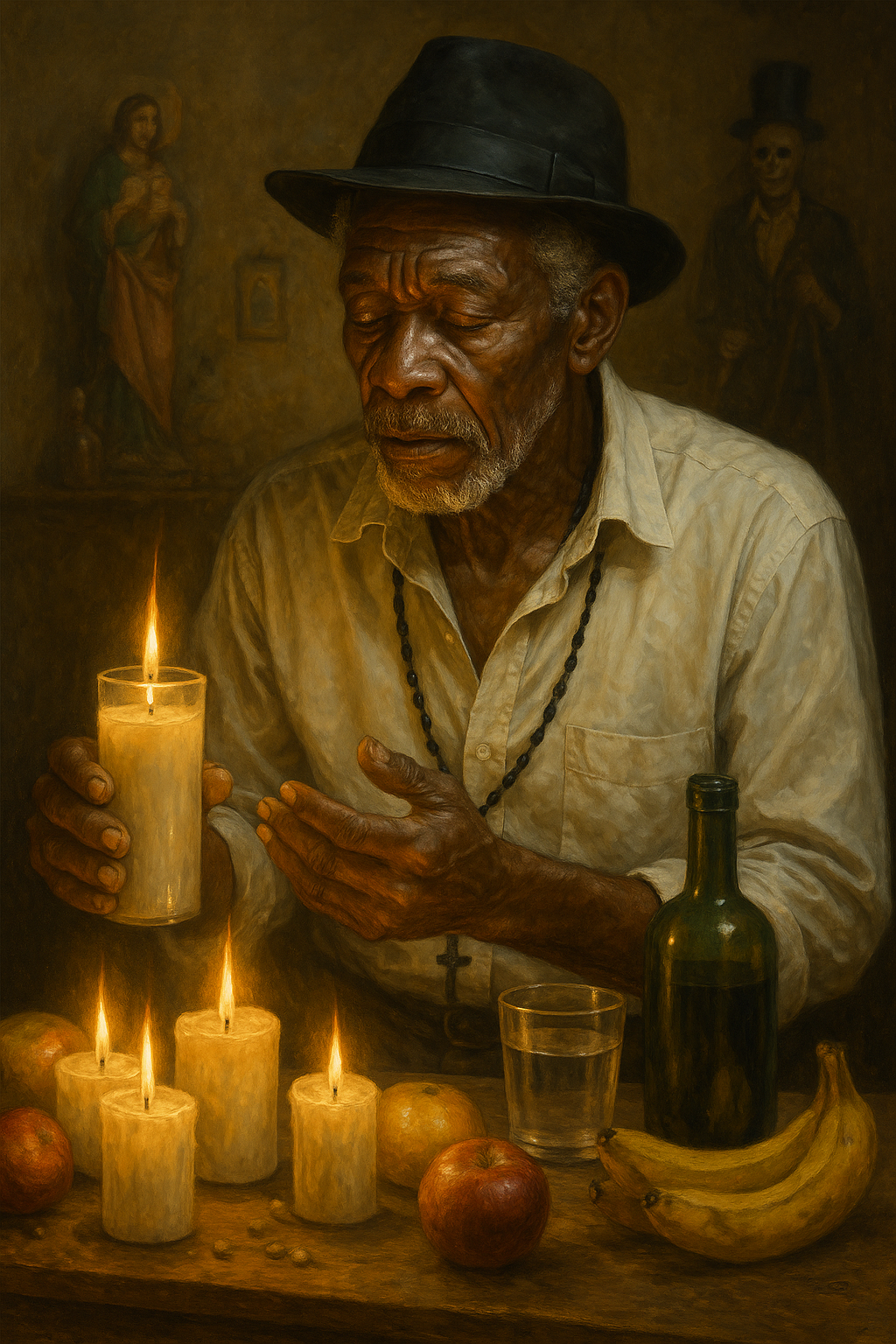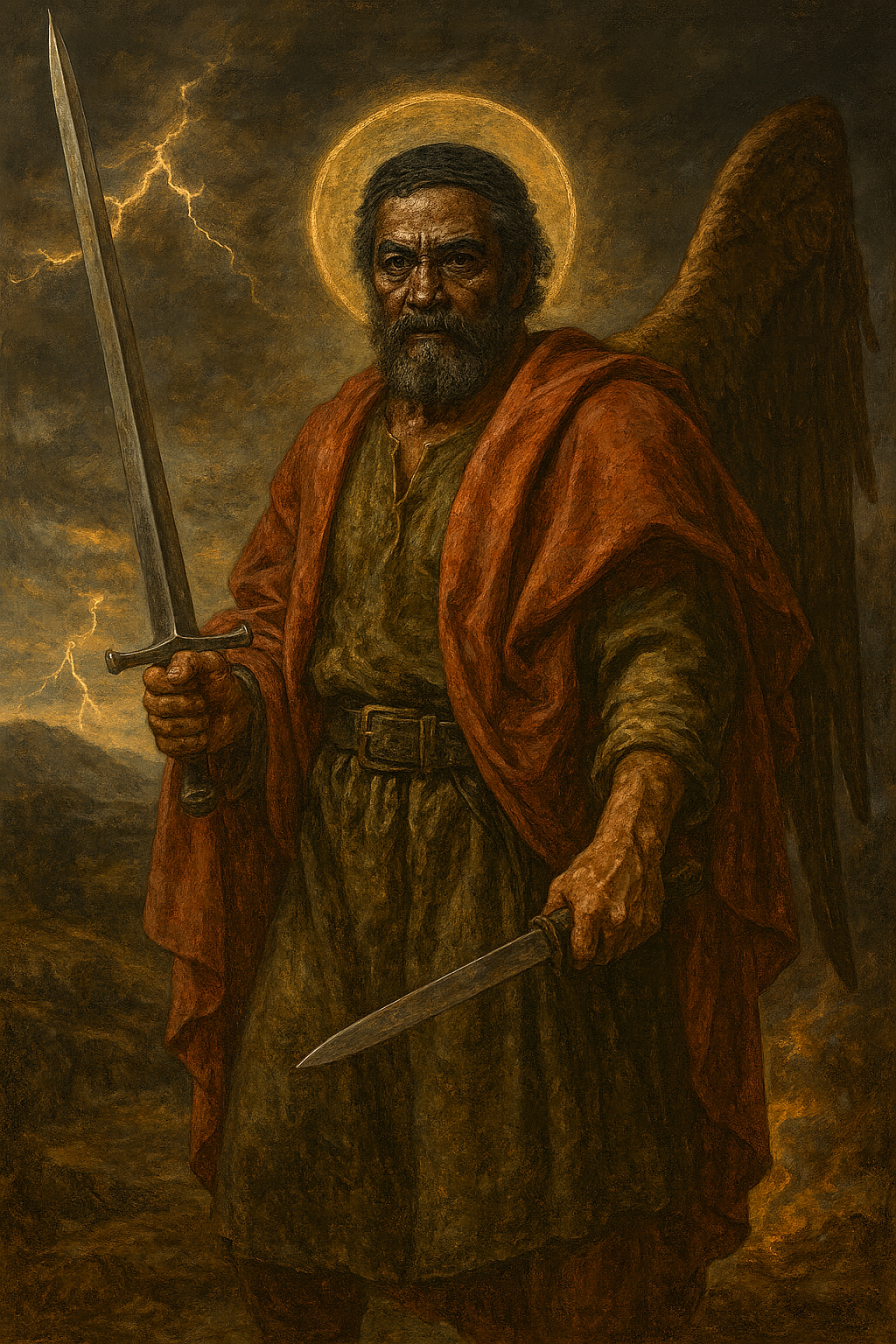21 Divisions | The Mysteries of Dominican Vodou at Ejiogbe Institute
-
What’s the difference between believers and initiates in dominican vodou?
Learn the difference between faithful believers and initiated priests in the 21 Divisions (Dominican Vodou). Discover spiritual responsibilities, sacred knowledge, and how to know if you're called. This post explores the clear difference between faithful believers and initiated priests within the 21 Divisions of Dominican Vodou. Believers may serve spirits with altars, offerings, and personal rituals, but only initiates receive sacred training, perform animal sacrifices, and serve the larger community. Initiation brings deeper responsibilities, spiritual authority, and a lineage of mystical knowledge that cannot be accessed by belief alone. This article also explains how to know if you're being called and why a proper reading is key.
-
What Is the 21 Divisions? Understanding Dominican Vodou
Discover the rich history and spiritual structure of the 21 Divisions in Dominican Vodou. Learn how it connects to Haitian Vodou, African lineages, and ancestral traditions across the island of Hispaniola. The 21 Divisions (Las 21 Divisiones) is not a separate religion but rather a nickname for a lineage of Vodou practiced throughout the Dominican Republic and northern Haiti. This tradition includes spirits (Loa/Lwa) from multiple African nations—Dahomey, Congo, Nigeria, and others—and is organized into three main spiritual nations: Rada, Petwo, and Gede. The divisions reflect ancestral inheritances, regional practices, and specific initiatory paths. Contrary to popular belief, Dominican and Haitian Vodou share deep historical and ritual commonalities, even as local names, songs, and ceremonies may differ. This post explores those similarities and differences, and explains the roles of the initiated and uninitiated alike.
-
Do you need initiation to practice the 21 divisions?
Explore whether initiation is required to serve spirits in Dominican Vodou. Learn how to know your calling, understand your limits, and walk with integrity in the 21 Divisions tradition. You do not need to be initiated to start serving the spirits in the 21 Divisions. Many people begin their spiritual path with dreams, visions, and spiritual sensitivity. They may light candles, give offerings, and build altars. But initiation is a sacred responsibility—not something to be rushed into for titles or aesthetics. This post helps you understand the spiritual ethics around initiation, the role of ancestral permission, and how to know if the spirits are calling you deeper.
-
Papa legba in the 21 divisions – offerings, colors & role
Discover the role of Papa Legba in the Dominican 21 Divisions. Learn his symbols, feast days, offerings, and how to honor him at your altar.
Key Facts About Papa Legba
- Role: Gatekeeper of the Lwa; opens roads and ceremonies
- Syncretism: Saint Anthony of Padua; sometimes Saint Lazarus (older aspect)
- Main Feast Day: June 13
- Common Offerings: Water-based hot chocolate, bread, cassava, roasted corn/peanuts, rum, pipe tobacco
- Colors: Brown (primary), with regional and lineage-based variations
- Sacred Objects: Pipe, crutches or cane, straw bag (makout), altar image
- Attributes: Sometimes appears as an old man, a child (T-Legba), or a beggar
- Spiritual Lessons: Charity, humility, reverence for tradition, helping the vulnerable
-
What Are Lwa? Meet the Spirits of the 21 Divisions
Learn about the Lwa in Dominican Vodou's 21 Divisions. Discover how they work with you, how they’re organized, and what signs show they’re walking with you.
What You Need to Know About the Lwa
- Lwa are not “gods” but spiritual intelligences or divine beings assigned to you through family or initiatory lineage.
- In the 21 Divisions, they are organized into Nations (Naciones): Rada, Petwo, Gede, and sometimes Nago or other subgroups.
- Everyone has Lwa walking with them—even before initiation.
- The Lwa can mount (possess), communicate through dreams, give signs, and protect you.
- Learning their names, colors, and preferences is important, but building a relationship of respect comes first.
-
Saint michael in the 21 divisions and his ancestral roots in haitian and dominican vodou
Explore the mysteries of Belié Belcan—syncretized with Saint Michael—chief of the 21 Divisions in Dominican Vodou. Learn his origins, symbols, offerings, and spiritual power. A guide for spiritual seekers drawn to justice, protection, and divine force. Featured by Ejiogbe Institute.
